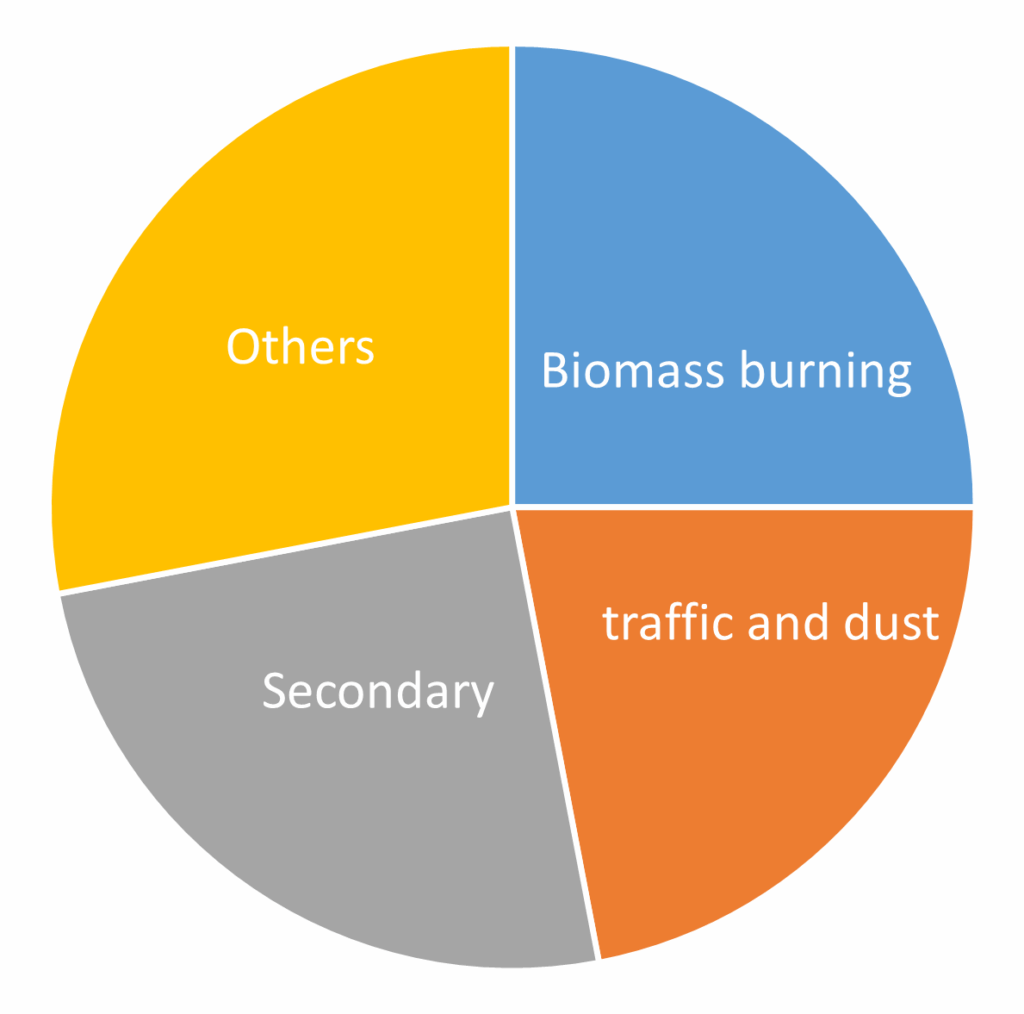Woodburning has emerged as the single most important source of primary fine particulate matter (PM2.5) in Birmingham and likely many other UK cities. Exposure to PM2.5 from wood stoves contributes to hundreds of premature deaths each year in Birmingham and imposes a significant burden on public health, particularly through non-communicable diseases. It also has far-reaching economic impacts, including lost productivity.
The popularity of domestic wood stoves is increasing rapidly, with an estimated 150,000–200,000 units sold in 2022 alone. While manufacturers often market these stoves as “clean” and “sustainable,” emissions of PM2.5 are in fact highly dependent on the type of fuel and burning conditions. As emissions from traffic and industry decline, woodburning is expected to become an even larger contributor to the UK’s air pollution problem.
Despite its growing importance, our understanding of woodburning remains limited. Current knowledge of its spatial and temporal patterns at regional and national scales is poor, and the UK’s national emission inventory carries large uncertainties. This gap hinders effective assessment of the true health and environmental impacts of woodburning.
This studentship will address these challenges by providing robust scientific evidence on the contribution of woodburning to air quality in the West Midlands and across the UK. The project will:
The outcomes of this research will deliver critical evidence to inform policy at local, regional, and national levels. By identifying effective strategies to reduce woodburning, the project will directly contribute to improving air quality, protecting public health, and supporting the UK’s transition to a cleaner, healthier future.
Figure 1: Contribution of different air pollution sources to PM2.5 in Birmingham. Produced from data by Srivastava et al., 2015. This figure shows that biomass burning contributed to a quarter of the PM2.5 mass, becoming the most important primary emitted PM2.5.

This project is a CENTA Flagship Project.
This project is suitable for CASE funding
Each host has a slightly different application process.
Find out how to apply for this studentship.
All applications must include the CENTA application form.
Choose your application route
DRs will be awarded CENTA Training Credits (CTCs) for participation in CENTA-provided and ‘free choice’ external training. One CTC can be earned per 3 hours training, and DRs must accrue 100 CTCs across the three and a half years of their PhD.
This proposal is developed together with
Year 1: Training in supersite instrument operation, R programming if needed, advanced receptor modelling and machine learning; planning for mobile observations; contributing to supersite observations; carry out mobile observations
Year 2: Continue supersite observations; learn air quality modelling, prepare emission inventories; analysing existing data and submit first paper
Year 3: Data analysis and manuscript drafting and submission
Year 4: Thesis drafting and viva
For any enquiries related to this project please contact:
Zongbo Shi, School of Geography Earth and Environmental Sciences, University of Birmingham, Birmingham, B15 2TT, United Kingdom, Email: [email protected], Telephone: 01214149128, Webpage: https://clean-air-research.org.uk/
To apply to this project:
Applications must be submitted by 23:59 GMT on Wednesday 7th January 2026.